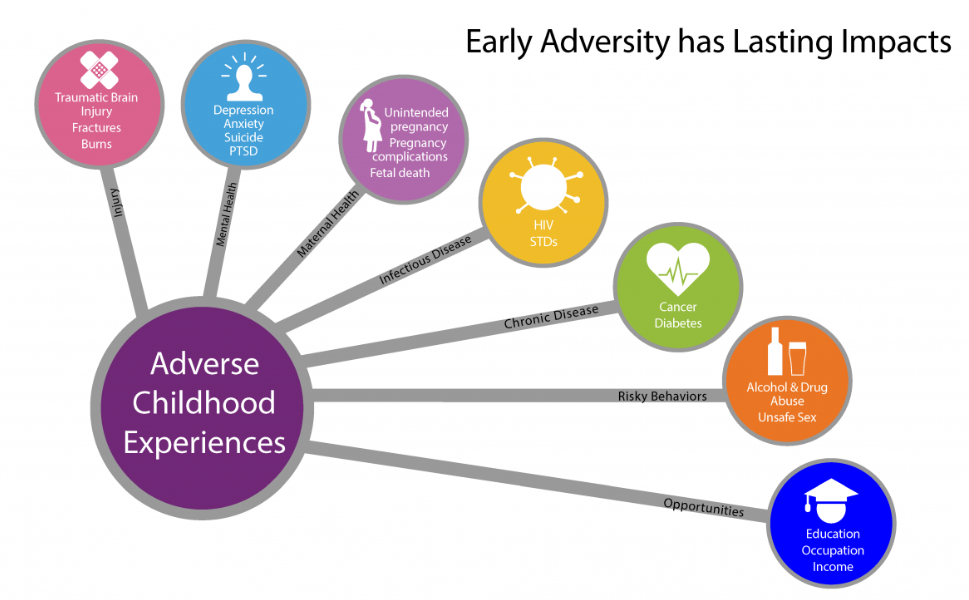
Navigating Life's Journey Blog
Helping others navigate this journey of Life!
A weekly blog from the Family & Consumer Sciences Department
Adverse Childhood Experiences(ACEs) and the Impact on Health
According to the Centers for Disease Control (CDC), Adverse Childhood Experiences (ACEs) is the term used to describe all types
of abuse, neglect, and other potentially traumatic experiences that occur to people
under the age of 18.
Adverse Childhood Experiences have been linked to
- risky health behaviors,
- chronic health conditions,
- low life potential, and
- early death.
As the number of ACEs increases, so does the risk for these outcomes.
The presence of ACEs does not mean that a child will experience poor outcomes. However, children's positive experiences or protective factors can prevent children from experiencing adversity and can protect against many of the negative health and life outcomes even after adversity has occurred.
The CDC recommends addressing certain conditions that put children and families at risk. Essentials for Childhood, provides strategies for lifelong health and well-being.
Take the ACEs Quiz to learn your ( or your child's) score at STRESS HEALTH.
Childhood trauma isn't something you just get over as you grow up. In the video below, pediatrician Nadine Burke Harris explains that the repeated stress of abuse, neglect and parents struggling with mental health or substance abuse issues has real, tangible effects on the development of the brain.
Video : How childhood trauma affects health across a lifetime
Nadine Burke Harris
